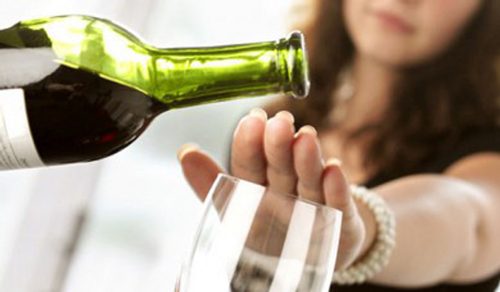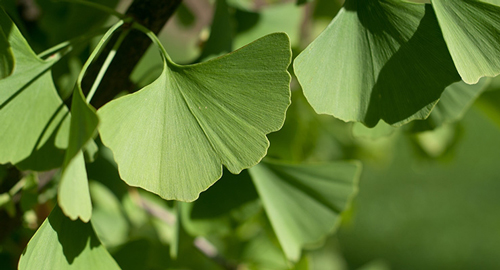Natural Solutions That Can Help With Alcohol Addiction
Unfortunately, in our society alcohol consumption is seen as a people “bonding” necessity when socializing, as a comfort when one is sad or as a celebration must-have when one is happy. For some people, this leads to addiction, and their entire life starts to revolve around alcohol. Those strong enough to get rid of their vice are then searching for help from a medical perspective.

It’s very easy to look at alcohol abuse with a judgmental eye and assume that everyone who cannot quit is weak, but the reality of alcohol addiction is much more complicated than that. Binge drinking can have hereditary, medical, and psychological causes, which means that treating it is no easy task. In many cases, rehab is a difficult process that spans across years and depends on so much more than the meds alcoholics take. One common misconception that both former addicts and their loved ones have is that once they are admitted out of a rehab clinic, they are completely healed. In reality, the recovery process continues after they get home and it’s crucial to stay in the same healing mindset.
From a medical perspective, alcohol addiction is a chronic disease and, with the following natural solutions, ex-alcoholics can stay focused on their journey and take control of their life:
Proteins and omega-3
Long-term alcohol consumption can take its toll on people’s health, damaging cells and tissues in their body and damaging the neurotransmitters in the brain. These negative effects translate into an inability to concentrate, mood swings, anxiety, depression, as well as physical symptoms such as headaches and a lower immune system. Fortunately, the damage can be reversed. The human body is amazingly resilient and, with the right nutritional substances, ex-alcoholics can start to feel better. Proteins and omega-3 fatty acids are essential during rehab, because they promote tissue recovery and reduce the risks of cardiovascular diseases (which are already elevated because of the alcohol). In addition, they also help manage the symptoms of depression, a common side-effect of abuse and withdrawal.
Where can you find them?
Omega 3 fatty acids can be found in high amounts in chia seeds, hemp seeds, walnuts, kidney beans, and soybean oil.
You can get your recommended protein intake from dairy products, seeds, nuts, lentils, chickpeas, beans, and tofu.
Milk thistle
Apart from the brain and the heart, the liver is also severely affected by alcohol abuse. In normal circumstances, the liver is really good at regenerating itself, but drinking large amounts of alcohol can affect its natural balance, leading to fat deposits, alcoholic hepatitis, and ultimately cirrhosis.
To counteract the harmful effects that alcohol abuse has on your liver, you can take milk thistle supplements. Also known as silymarin, milk thistle is actually a flowering herb and its main active ingredient acts both as an anti-inflammatory and as an antioxidant. In addition to speeding up liver tissue recovery, milk thistle can also lower bad cholesterol levels and reduce the chance of heart disease. Because long term alcohol abuse has been proven to cause coronary heart disease, natural solutions that combine antioxidant benefits with cardiovascular ones are highly recommended.
Ginkgo Biloba

Gingko Biloba supplements have been very popular lately because this plant has dozens of health benefits, from improving concentration to treating migraines. For people struggling with addiction, this plant is essential for several reasons:
• Improves brain function. In many cases, people who struggled with alcohol abuse find it hard to concentrate and memorise things very well. According to the experts at help4addiction.co.uk, one major challenge for patients is to focus at work or complete tasks as quickly as they used to. You might find that your attention span is lower, that you can no longer work under pressure or that you forget things quickly. Gingko Biloba can help manage these symptoms.
• Reduces anxiety. Alcohol abuse and anxiety are often interlinked. In some cases, it is the need to get rid of anxiety that pushes people to resort to alcohol. In other cases, anxiety can appear later on, after they’ve received treatment, but they’re worried that they might relapse and they live in a constant state of tension. According to preliminary research, the antioxidant content in Gingko Biloba may help reduce the symptoms of anxiety.
Plant therapy
Gardening may not be a supplement, but it is a natural solution and a healthy practice that can help ex-alcoholics stay focused on their journey to recovery. According to recent findings, the people in communities that do a lot of gardening live longer, and the secret is in the healthy bacteria found in the soil. Soil contains fulvic acid – a miracle molecule that has been linked to many health benefits, including improved gut health, better digestion, and protection from free radicals.
But, most of all, gardening is a great ally in the fight against alcohol addiction because it gives people time to focus on their wellbeing, to meditate, and to relieve stress. Spending a few minutes in your garden every day improves your mental state and the fact that you are actually working on growing something gives you a tremendous feeling of accomplishment.
Getting rid of alcohol addiction is a physical and mental battle. A balanced diet rich in antioxidants, proteins and Omega 3 will help people pursuing to get rid of this vice get their health back on track but, at the same time, they need to find time for yoga practice and hobbies that aid mental recovery.
yogaesoteric
March 15, 2020
Also available in:
 Français
Français
